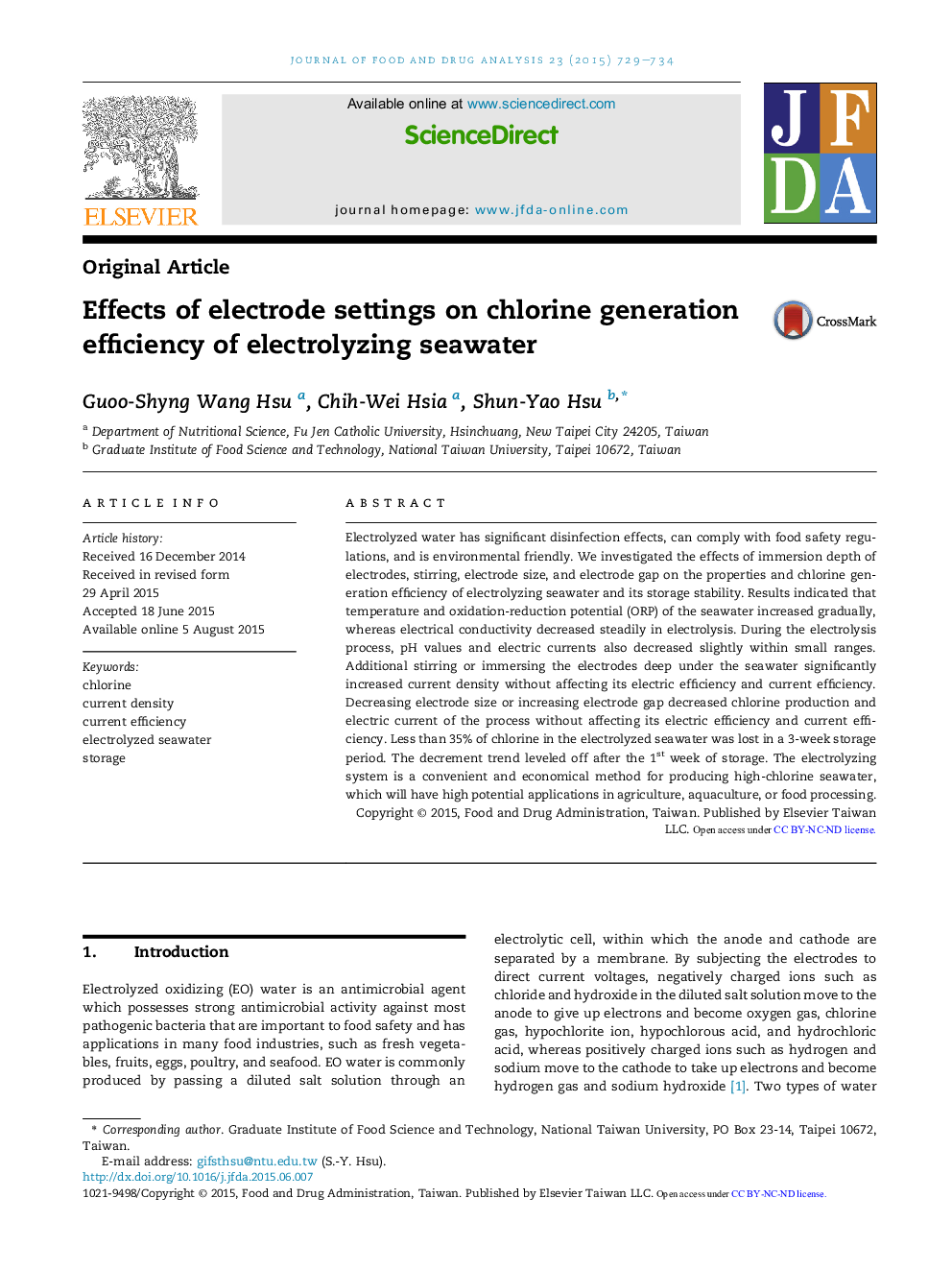| کد مقاله | کد نشریه | سال انتشار | مقاله انگلیسی | نسخه تمام متن |
|---|---|---|---|---|
| 2507392 | 1117486 | 2015 | 6 صفحه PDF | دانلود رایگان |
Electrolyzed water has significant disinfection effects, can comply with food safety regulations, and is environmental friendly. We investigated the effects of immersion depth of electrodes, stirring, electrode size, and electrode gap on the properties and chlorine generation efficiency of electrolyzing seawater and its storage stability. Results indicated that temperature and oxidation-reduction potential (ORP) of the seawater increased gradually, whereas electrical conductivity decreased steadily in electrolysis. During the electrolysis process, pH values and electric currents also decreased slightly within small ranges. Additional stirring or immersing the electrodes deep under the seawater significantly increased current density without affecting its electric efficiency and current efficiency. Decreasing electrode size or increasing electrode gap decreased chlorine production and electric current of the process without affecting its electric efficiency and current efficiency. Less than 35% of chlorine in the electrolyzed seawater was lost in a 3-week storage period. The decrement trend leveled off after the 1st week of storage. The electrolyzing system is a convenient and economical method for producing high-chlorine seawater, which will have high potential applications in agriculture, aquaculture, or food processing.
Journal: Journal of Food and Drug Analysis - Volume 23, Issue 4, December 2015, Pages 729–734
